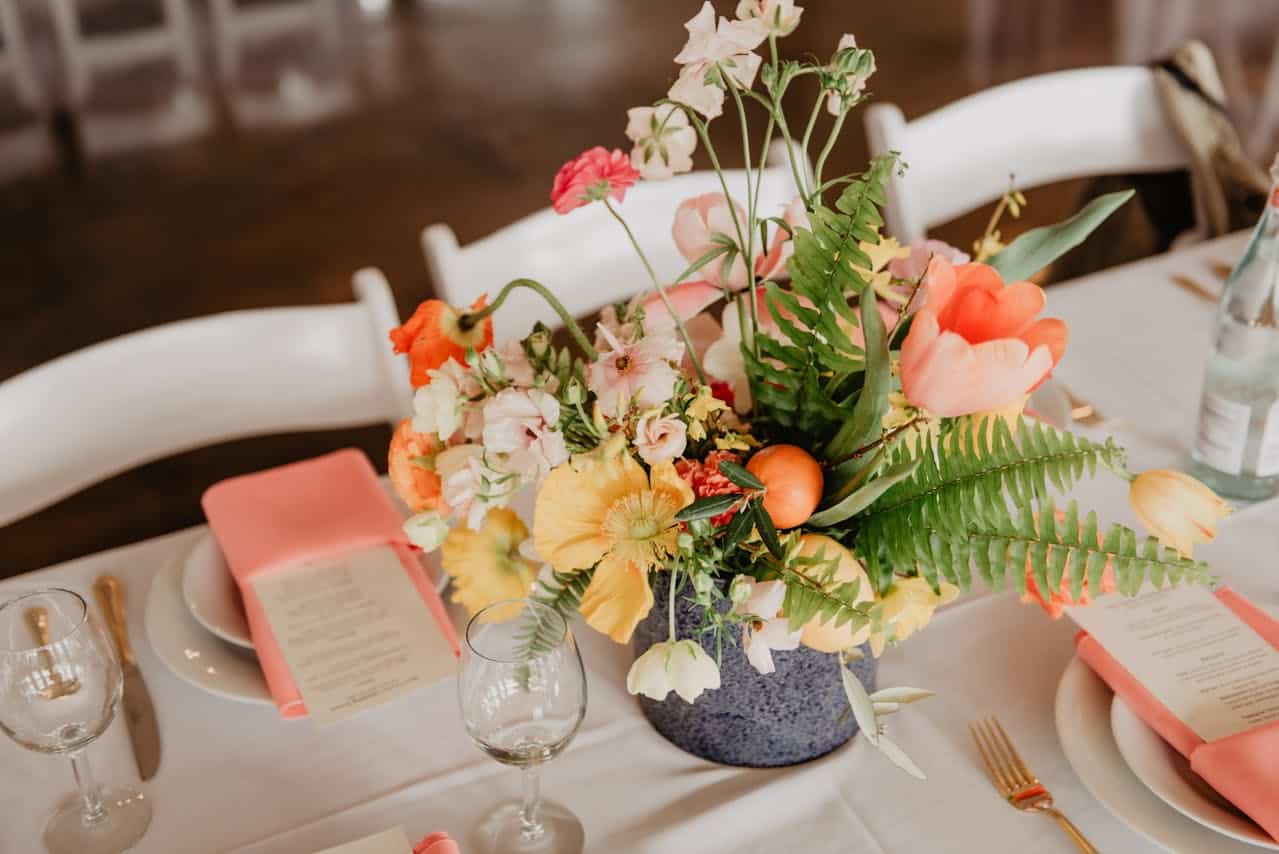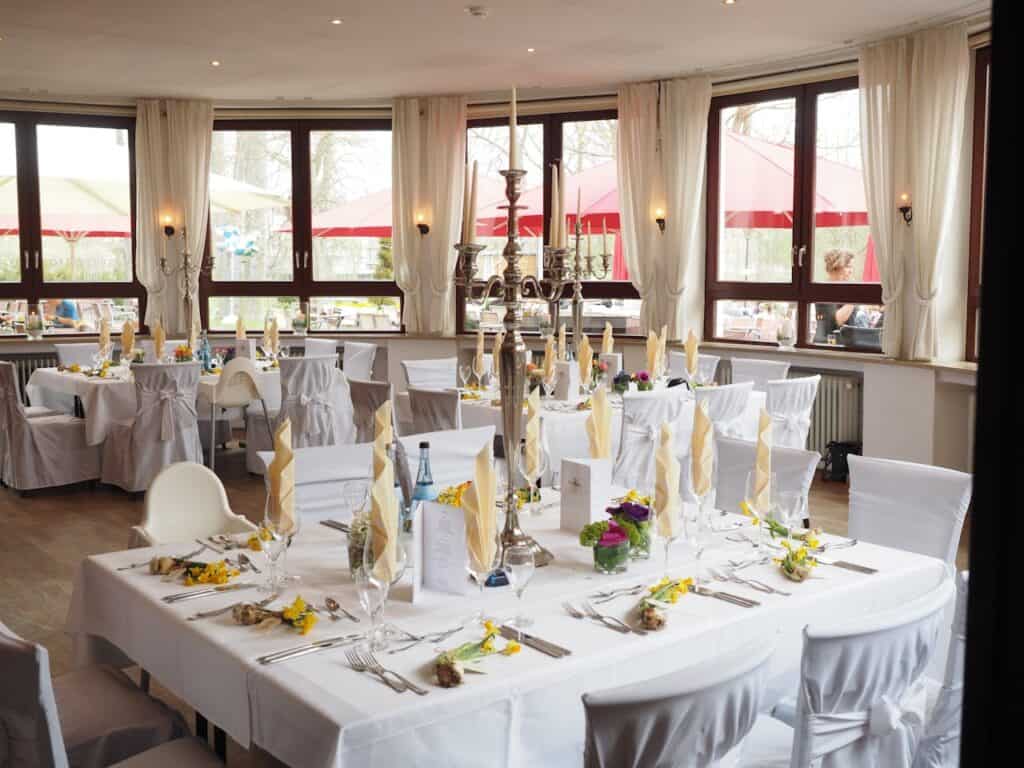
By Jermaine Thomas April 7, 2025
Event catering has significantly evolved from the uniform buffet lines of earlier times. As guests grow more mindful of food, culturally varied, and health-conscious, the demands on caterers have changed significantly. Nowadays, just providing a range of dishes isn’t sufficient; individuals seek a customized, considerate, and welcoming dining experience.
This shift has given rise to customizable catering, where menus are tailored to the needs, preferences, and restrictions of the guests.
The Rise of Customizable Menus
As more people seek personalized experiences, it’s no surprise that catering has followed suit. Customization is now a top priority in food service.
Meeting Modern Expectations
Guests today are more mindful of what they eat. Whether it’s dietary restrictions, lifestyle choices like veganism, or food allergies, events must cater to individual needs. Customizable catering allows event planners to accommodate those needs without compromising on taste or presentation.
Beyond health concerns, food has also become a form of self-expression. People want their meals to reflect their identities, backgrounds, and values. Custom menus allow for that expression, making guests feel seen, heard, and respected.
Why Buffets Are No Longer Enough
In the past, buffets were popular because they were simple and varied, but they often did not accommodate special dietary requirements. Furthermore, many people are reconsidering the conventional buffet model in the post-pandemic world due to worries about open food displays and shared utensils. This is where contemporary buffet substitutes excel, providing an equivalent degree of diversity with improved control and hygienic conditions.

Benefits of Customizable Menus in Events
Choosing customizable catering isn’t just about being trendy; it adds real value to any event.
Elevated Guest Experience
When guests feel their needs are acknowledged and met, they’re more likely to enjoy themselves. Personalized food options show thoughtfulness and attention to detail, turning a meal into a memorable part of the event. It’s a small gesture that can have a big emotional impact.
Reduced Food Waste
One of the lesser-discussed advantages of customizable catering is its efficiency. When guests choose exactly what they want, there’s less wasted food. Caterers can prepare more accurate quantities, reducing leftovers and saving money.
Flexibility and Creativity
Custom menus give caterers the opportunity to express their creativity. Chefs can try plated meals, food stations, live cooking setups, or interactive build-your-own options instead of being committed to a set buffet arrangement. Often, these contemporary buffet substitutes are more aesthetically pleasing and captivating.
Examples of Modern Buffet Alternatives
So, what does moving “beyond the buffet” actually look like? Here are a few ways event planners and caterers are reimagining the food experience.
Live Cooking Stations
Chefs preparing meals on the spot; whether it’s pasta, stir-fry, or tacos; bring an exciting dynamic to the dining experience. Guests can request specific ingredients or seasoning levels, creating truly personalized plates.
This concept works especially well in customizable catering scenarios because it allows for instant modifications, ensuring everyone gets something they’ll enjoy and can safely consume.
Themed Food Bars
Food bars are becoming more popular. Think of salad stations, sushi rolls made to order, mac and cheese bars, and dessert decorating counters. These arrangements provide variety and interaction, which is a welcome change from contemporary buffet options.
Plated Custom Menus
For more formal occasions, guests may be asked to select their meals during the RSVP process. Caterers then tailor plated meals based on those choices, accommodating dietary restrictions without disrupting the flow of service.
This approach is also a great example of inclusive food service, where every guest receives equal attention regardless of their food needs.
Making Events More Inclusive Through Food
Inclusivity isn’t just about accessibility or diverse speakers; it extends to the food served at your event.
Respecting Dietary Needs and Cultural Preferences
Respecting all dietary restrictions without making guests feel like an afterthought is the goal of inclusive food service, which covers everything from gluten intolerance to religious food laws. A vegan guest shouldn’t have to eat plain rice because it’s the only animal-free option, and a kosher guest shouldn’t be forced to eat a salad while everyone else enjoys a feast.
By embracing customizable catering, planners can offer choices that include everyone at the table.
Creating a Sense of Belonging
Food plays a powerful role in helping people feel connected. Offering diverse menu options that reflect different cultures can help guests feel more at home. It’s not just about avoiding allergens; it’s about welcoming everyone through the universal language of food.
Avoiding One-Size-Fits-All Solutions
Traditional buffets, while convenient, assume all guests have similar tastes and needs. This outdated approach can unintentionally exclude those with unique preferences or restrictions. Modern buffet alternatives recognize the diversity of your guest list and respond accordingly.
How Technology Supports Customizable Catering
The rise of customizable catering wouldn’t be possible without the help of modern tools and software. Technology makes it easier to collect preferences, communicate with guests, and streamline service delivery.
Pre-Event Meal Selection
Many event platforms now allow guests to submit meal preferences along with their RSVP. This data helps caterers plan more accurately and prepare specialized options well in advance.
Interactive Menus and Digital Stations
During the event, guests can personalize ingredients, select portion sizes, and even mark allergens using tablet menus or digital ordering kiosks. These tools, which offer efficiency and personalization, make contemporary buffet alternatives a reality.
Data for Better Service
After the event, caterers can use data on popular dishes and dietary patterns to plan for future menus. This helps build better inclusive food service systems that evolve with the needs of the community.
Challenges and Considerations
While customizable catering offers many benefits, it’s not without its challenges. Being aware of these in advance can help event planners prepare more effectively.
Logistics and Planning
More choices mean more complexity. Caterers must juggle different ingredients, preparation styles, and serving methods. It’s important to have a well-organized kitchen and a detailed prep schedule to ensure timely service.
Budget Constraints
Custom menus can be more expensive because they often ask for more ingredients and specialized personnel. To keep costs under control and still provide a unique experience, clever planning can be used, such as limiting the number of customizable elements.
Communication is Key
For inclusive food service to work, there must be clear communication between planners, caterers, and guests. It’s not just about offering gluten-free or dairy-free options; it’s about ensuring guests know they’re available and where to find them.
Customization Across Different Types of Events
Whether it’s a corporate gathering, wedding, or nonprofit gala, customizable catering can be tailored to suit the event’s style and scale.
Weddings
Brides and grooms are increasingly looking to personalize every detail of their big day; including the food. Offering guests choices between cultural cuisines, seasonal ingredients, or dietary-specific meals ensures the event feels intimate and inclusive.
Corporate Events
Food and employee satisfaction are often related. Contemporary buffet options for business gatherings, such as plant-based menus or build-your-own bowls, can excite guests, impress clients, and demonstrate the brand’s dedication to diversity and creativity.
Community and Cultural Events
Food has deep cultural roots. Community festivals or cultural showcases can benefit from inclusive food service that reflects different cuisines while still allowing for customization based on taste, religion, or allergies.

The Future of Event Catering
As our understanding of food, health, and inclusivity continues to evolve, so will the expectations around catering. The future lies in choice, customization, and communication.
Sustainability and Ethical Choices
Many guests today care about where their food comes from. Offering local, organic, or plant-based options aligns with both ethical and environmental values. This emerging trend pairs beautifully with customizable catering, allowing guests to make conscious decisions that match their beliefs.
Personalization Beyond the Plate
Imagine attending an event where your name tag has a QR code that connects to your preferred menu, nutritional information, or even your preferred beverages. Such experiences are not far away, as catering services and technology continue to merge to create events that are more smart and memorable.
Inclusivity as a Standard
What was once a “nice-to-have” is now a must. Inclusive food service will continue to grow as a basic expectation; not just at high-end events but across the entire catering industry. Accessibility and respect through food should be standard, not special.
Conclusion
The days of lengthy buffet lines and generic food were long gone. Thoughtful experiences define today’s events, and food is a major component. Event planners can now provide meals that satisfy dietary requirements, celebrate cultural diversity, and delight every guest thanks to the growth of customizable catering. In addition to staying ahead of the curve, caterers and planners who embrace contemporary buffet alternatives and place a high priority on inclusive food service ensure that every guest feels valued, welcomed, and well-fed.
As we move further into the age of personalization, one thing is clear: the buffet is no longer the star of the show. The future of catering lies in choice, creativity, and connection; one plate at a time.